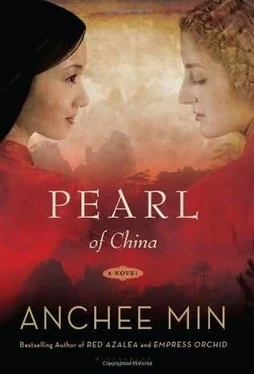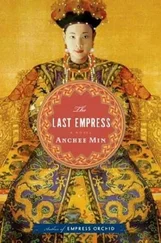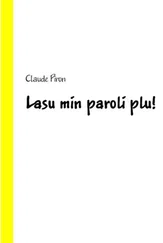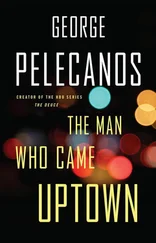Dick said that my Christian values had ruined me. I told him that he was ruined, not me. Dick refused to see Mao’s flaws and the fact that he had become a bully. Mao had learned from Stalin, a man who murdered whoever disagreed with him. Half of Dick’s friends were detained and questioned and one third executed as traitors.
“How can you sleep at night?” I asked my husband.
Dick encouraged me to make friends with Madame Mao. “She is a better choice than Pearl Buck,” he insisted.
I tried, but I couldn’t get Madame Mao to like me. She was the opposite of Pearl, judgmental and opinionated. Blessed with good looks, she was also flashy, pretentious, and egotistical. As a former actress, she knew her craft. She called herself “Chairman Mao’s humble student” and was proud to be his trophy. She was not shy about her “capital.” Her skin didn’t turn potato brown as the rest of ours did in the desert sun and harsh wind. Her eyebrows were as thin as a shrimp’s feelers. She and Mao made a perfect couple. They both wanted power and fame. Madame Mao loved to say that she was a peacock among hens. By hens, she meant the women of Yenan, and that included me.
My biggest disappointment was that Mao didn’t turn out to be the hero I had expected. Under the guise of a scholar, Mao sold confidence to people. He made the peasant soldiers hear their own voices when he spoke to them.
When I listened to Mao, I watched his eyes. They appeared to be smiling even when he uttered the most violent phrases. Mao had a broad forehead, a rice-patty-shaped face, and a feminine mouth. He never looked people in the eyes when he talked with them. Mao let people observe him. Never once did I hear him answer a question in a straightforward manner, although he encouraged others to do so. Mao was a master when it came to the art of beating around the bush. He even said himself that he enjoyed catching his enemy by surprise, whether in conversation or on the battlefield.
Dick made the best conversational partner for Mao in the inner circle. He and Mao often talked deep into the night. “We simply enjoy each other’s minds,” Dick told me. Yet Dick failed to learn one important lesson, which was that Mao hated to lose.
Dick had yet to find out that Mao wanted absolute power, though he appeared to desire the opposite. Mao repeated the same phrase over and over again to foreign journalists: “My dream is to become a classroom teacher.” He would open his conversation with a Chinese poem and close by reciting Marx or Lenin. People were easily charmed by Mao. His broad knowledge and sharp wit disarmed. Once, Dick helped Mao issue a telegram to the war front. He was shocked that Mao insisted on ending the communiqué with a line from a poem. “Only flies are afraid of winter, so let them freeze and die.”
Dick told me later that when Mao had trouble giving direction during battles or was unsure of his next move, he would telegram poems to his generals. The confused generals would have no choice but to make up their own minds about whether to charge or retreat.
“Such is Mao’s brilliance,” Dick said admiringly.
***
Dick brought Madame Mao the local singer who wrote the song “Red in the East.” Dick never guessed that one day the tune would become China ’s unofficial national anthem.
I went to listen to “Red in the East” being performed at a weekend party for high-ranking officials. Madame Mao introduced the singer, whose name was Li You-yuan. Li was a peasant dressed in rags with a dirty towel wrapped around his forehead. He was in his forties and had three missing front teeth. Dick did a background check and found that Li was not one hundred percent proletarian, because his family owned a half acre of land.
When Dick reported this to Madame Mao, she said, “If I say Li is a peasant, he will be a peasant.”
The song “Red in the East” was Madame Mao’s birthday gift to her husband.
When the peasant opened his mouth, the listeners’ jaws dropped. Li’s voice was like a goat’s cry.
Mao remained seated, because he had the good sense to trust his wife’s magic-making abilities.
After Li exited the stage, Madame Mao presented her version of “Red in the East.” The singing was performed by the Yenan repertory group conducted by Madame Mao herself.
Red in the East
Rises the sun
China has brought forth Mao Tse-tung
Creating happiness for the people
He is our greatest savior
Li You-yuan didn’t write more than the first line of “Red in the East.” The peasant had no knowledge of the Red Base or its leader, Mao. He hummed the tune to pass the time when he plowed his field. Dick happened to cross his path and heard him singing. Dick foresaw the usefulness of the tune and brought Li to Madame Mao’s attention.
To demonstrate his modesty, Mao rejected Madame Mao’s proposal to list “Red in the East” as a “must-learn song” for the troops.
Madame Mao insisted that it was the people’s wish that Mao be regarded as the rising sun of China.
Madame Mao asked Dick to send me a message. She criticized me as arrogant. I tried to hide my disgust for the sake of Dick.
Madame Mao was unaware that I had some knowledge of her past. Before coming to Yenan, she had been a third-rate movie actress in Shanghai. She had had an affair with a newspaper reporter who happened to be Dick’s friend. At the Red Base, Madame Mao’s past was a stain on an immaculate embroidery. Desperate to get rid of the stain, she behaved like a passionate revolutionary. She invited me to watch her perform a newly learned skill-making yarn out of raw cotton.
I was instructed by Madame Mao to follow her making yarn instead of spending time with my daughter. Sitting next to Madame Mao, I was miserable. She recited her husband’s phrases as she rolled the wheel. “We will never understand peasants if we don’t soak our hands in manure, make yarn out of raw cotton, and sweat in the fields. We won’t be qualified to be a member of the proletarian class until we smell like manure and garlic instead of perfume.”
I did something behind Dick’s back. I bribed the base’s special postman who traveled between Yenan and Shanghai as a merchant. The man smuggled my letters out to Shanghai and then mailed them to Pearl in America using a secret address. In my letters, I reported that I had begun telling Christian stories to Rouge. I told Pearl that my day was brightened when Rouge started to fall in love with “Amazing Grace.”
Like raindrops in the middle of a drought, I received a letter from Pearl. It comforted me and soothed my anxiety, for I had been friendless. Pearl told me that she had been traveling the world and had spent a great deal of time in India, Southeast Asia, and Japan. The line that filled my eyes with tears of happiness was that she was “dying to return to China.”
When Mao defied Stalin and crossed the Yangtze River in pursuit of Chiang Kai-shek in 1948, Dick told me that the Communists would win China. By May 1949 it was a reality. The people had suffered for twelve years: eight years fighting Japan and then four years of civil war. It was hard to believe that the wars were over. Russian and American advisers on both sides had to admit that they had been wrong. Mao believed that there ought to be only one lion on the mountain. He would never share power with Chiang Kai-shek.
The day his capital, Nanking, fell, Chiang Kai-shek fled to Taiwan. Mao would have continued the chase until he captured Chiang Kai-shek if it hadn’t been for the American military forces on the island. Mao was cautious. He didn’t want to be stretched too thin, so he claimed a nation and named it the People’s Republic of China.
Читать дальше












